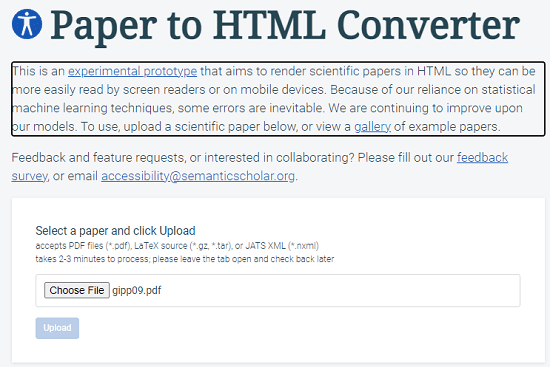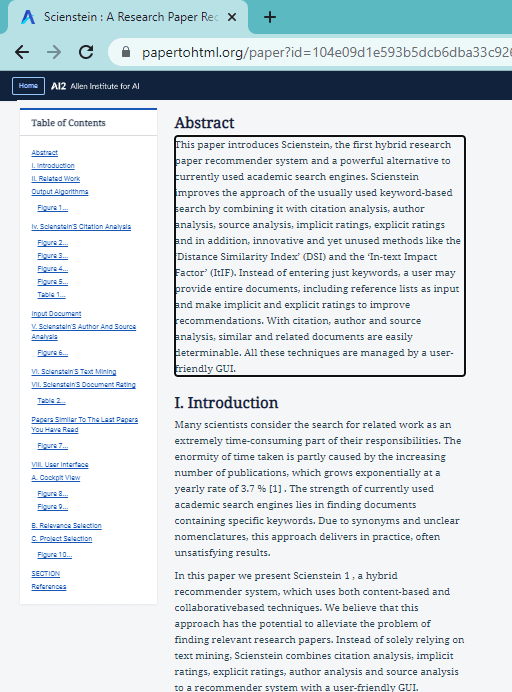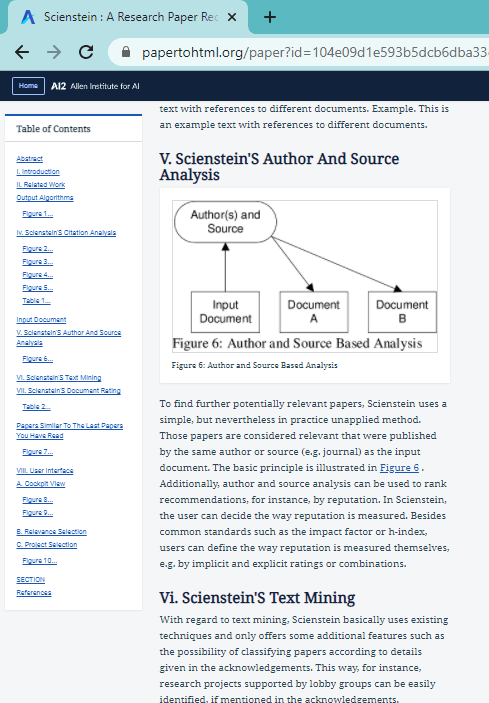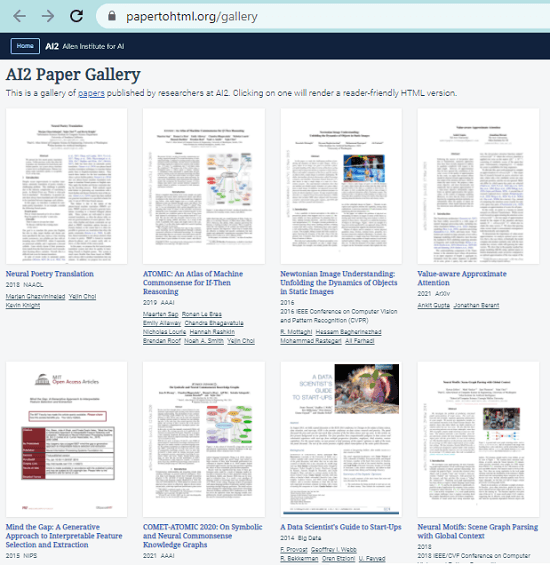Paper to HTML Converter is a free online tool to render scientific papers from PDF and LaTeX formats to HTML. It uses machine learning to extract different parts from the paper intelligently such as abstract, introduction, etc. It then displays all that data on a webpage. Here it also kind of archives the papers that you have converted to HTML by caching them on the left side.
Keeping data in PDF format is not really readable for small devices like mobiles. And that is why for better readability, you can convert them to web pages which are easy to read and can be further simplified using the built-in reading mode of modern browsers. And that’s where this handy tool paper to HTML converter comes in.
This is an intelligent tool that conveniently analyzes the supplied PDF or latex file and then generates a that page. It does not store the PDF or latex files that you upload, but it keeps the cached copy of the web page it generates for faster access by the user next time. But you can also have that removed by making a simple request to the webmaster.
How to Convert Scientific Papers to HTML from PDF, LaTeX with this Free Online Tool?
There is really no sign up or registration is required in order to use this online tool. You only have to go to the main website here and then simply start by uploading a PDF or latex file.

It will take a while to extract contents and process your PDF file. So let it do its work and be patient when it is extracting the content for you.
When it is done, it will show you the generated webpage with the contents of the paper that you submitted. You can then read the paper as a simple webpage which is much easier to read. Also, you can share this web page with others using the URL.


There is a gallery available on the website as well. In the gallery, you can see the previously submitted papers to the website. You can read them or do whatever you want. The link to the papers gallery is on the main homepage.

In this way you can use this simple and intelligent tool to quickly convert scientific papers to web pages. A little downside is that you cannot export the web page it has generated. You can only share the web page version of the paper with others via URL. However, even though this tool uses machine learning, it may not work on some complex kind of scientific papers. But I hope in the later updates they will fix that.
Final thoughts:
If you are looking for an easy way to share scientific papers with others, then papers to HTML converter is one great tool you can use. The fact that it uses machine learning to intelligently extract paper text is just amazing. For simple papers, it accurately renders them as web pages and also aligns the images accordingly. I like the overall functionality; however, I still have some doubts on data storage. But for faster and easier access to a scientific paper in a reader friendly mode on mobile devices, this is one of the best options available on the Internet.